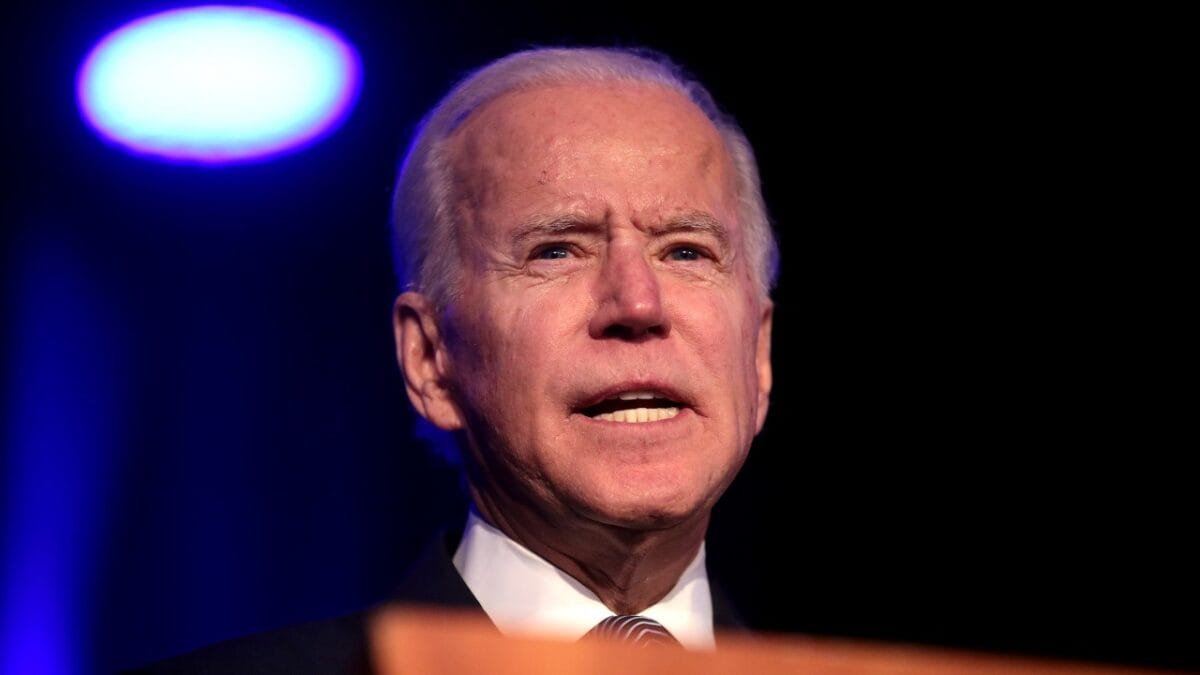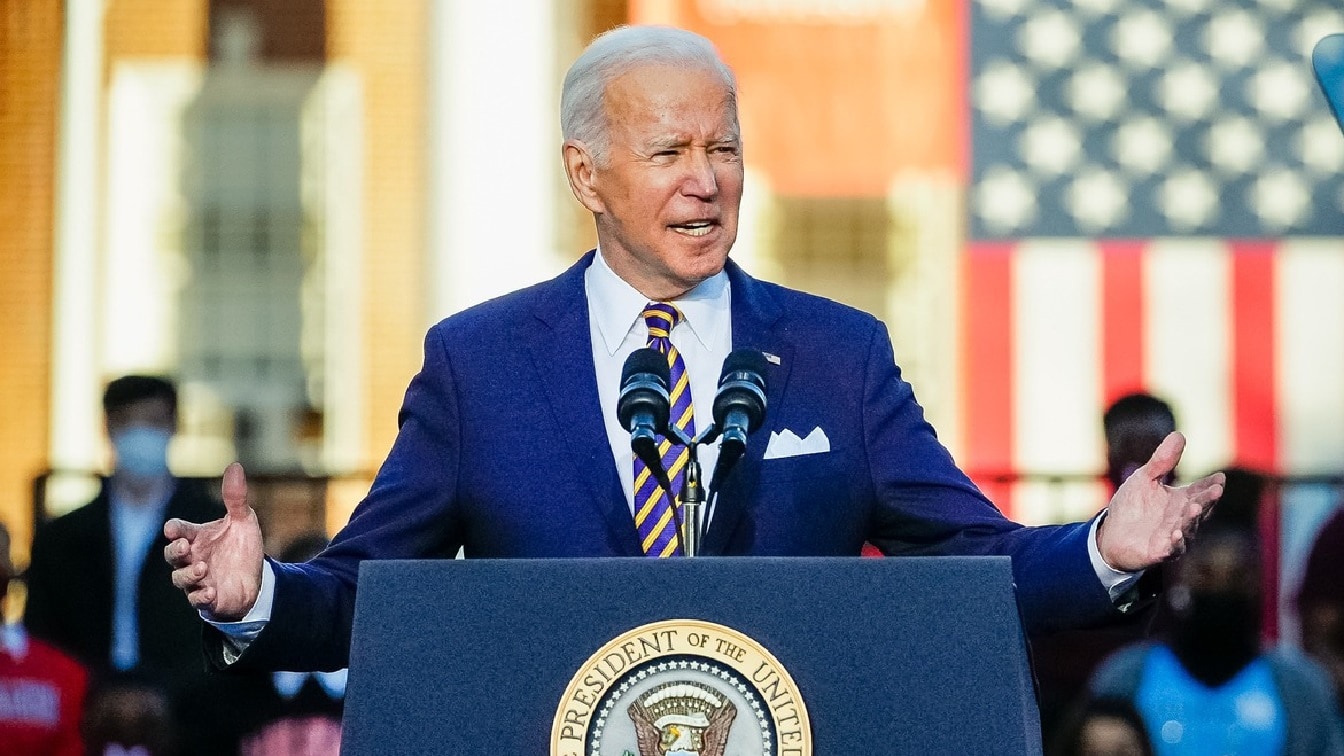U.S. President Joe Biden arrived in Israel today. His visit was intended to “reaffirm the United States’ solidarity with Israel and our ironclad commitment to its security,” as Secretary of State Antony Blinken declared.
The visit, like Biden’s swift action and strong rhetoric in the aftermath of Hamas’ barbaric Oct. 7 attack, is an important demonstration of American support for Israel. But the biggest contribution Biden could have made to Israeli security would have been to use his time in Israel as an occasion to announce a new U.S. strategy of pursuing regime collapse in Iran.
U.S. support since Oct. 7 has been unambiguous, with the deployments of two U.S. carrier strike groups and dozens of fighter aircraft to the broader Middle East. American military flights bearing critical munitions and equipment have been landing in Israel since last week. The president and secretary of state did not mince words in their remarks, with former Israeli Ambassador to the United States Michael Oren calling Biden’s Oct. 10 speech “the most passionately pro-Israel speech in history.”
Israel’s security, however, will not be restored merely by defeating Hamas. Iran’s role in Hamas’ attack remains unclear, but intelligence is beginning to indicate the extent of Tehran’s involvement. Whether or not Iran gave the green light, there can be little doubt that Hamas would not have been able or willing to carry out this attack without Iranian funding, training, and weapons.
The United States seems to acknowledge Iran’s role, though reluctantly and opaquely. White House officials have called Iran “broadly complicit.” Biden, implicitly recognizing Tehran as the puppet master behind Hamas’s attack, conveyed to Iran a simple message: “Don’t.”
But the president did not raise Iran during his time in Israel. Nor has there been an acknowledgement that his administration’s accommodationist policies enriched and emboldened Iran and its proxies, thereby helping to enable this attack. For almost three years, the United States has let Iran-backed attacks on U.S. troops, regional partners, and commercial shipping go largely unanswered. Meanwhile, Iran has refilled its war chest as the United States looked the other way, with Tehran increasing its oil sales to China, refilling its coffers through sanctions waivers for Iraq and netting princely ransoms for American hostages.
There is still time for Biden to reverse course. He should announce a change in policy toward Iran. It would be the most powerful show of support by the United States for Israel during this critical hour. That new policy should be one of regime collapse.
So long as this murderous regime remains in power in Tehran, no one will be safe. It will continue, as it has for more than 40 years, to kill its own citizens, seek Israel’s destruction, develop nuclear weapons, fund terrorism across the globe, and even seek to assassinate Americans in America.
To counter the threat from the Iranian regime, Biden should make regime collapse the U.S. strategic aim. Unlike U.S.-led regime change, this strategy applies pressure on all fronts to increase the regime’s internal stress and hasten the Iranian people’s will to overthrow it.
The first step is to do nothing that strengthens the Tehran regime, including sanctions relief or paying ransom. Second, Washington should restore and enforce punishing economic sanctions. Third, it should roll back Iran’s regional footprint, using measures such as interdicting weapons supplies to its proxies and retaliating when Iran directs attacks.
Washington should also support the regime’s opponents in any way possible. It should work to make sure Iran cannot achieve nuclear weapons capability. Finally, it should give Israel the weapons to boost its own ability to continue countering Iran’s nuclear and regional aggression.
Biden should also use his bully pulpit to put supposed U.S. regional partners on notice that support for Hamas — financially, politically, or rhetorically — comes at the expense of good relations with the United States.
Biden should offer the same unwavering U.S. support he has given to Israel to those regional countries that have the courage to stand with Israel and not give in to Iranian intimidation.
Specifically, he should announce that he will personally travel to regional capitals, especially Riyadh, to reassure leaders of America’s commitment to the Middle East and make the case for continuing to expand the Abraham Accords.


Other heads of state are reportedly planning visits to Israel over the coming days, and they would do well to follow with similar statements and commitments. Such actions demonstrate to Iran that the threats Israel faces today are those that peace-loving nations around the world face, from a common source with a common destructive aim: Iran.

